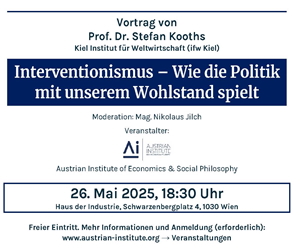Würde Bayern als eigener Staat an PISA teilnehmen, wäre es Europas PISA-Star, nicht Finnland. Es gilt, von den erfolgreichsten Bundesländern Deutschlands (Bayern und Sachsen) zu lernen, um auf der Überholspur zu bleiben. Gesamtschulen wird man dort aber nicht finden.
Eine ganze Reihe europäischer (Gesamtschul-)Staaten versucht gleichzeitig Reformen, die wieder eine Annäherung an das bayrisch-österreichische System bedeuten. Beides sei mit einigen Zitaten untermauert:
„Das Bundesland (Anm.: Bayern) liegt bei der Auswertung in den Hauptkriterien Lesekompetenz, Naturwissenschaften und Mathematik ganz vorne, gefolgt von Baden-Württemberg und Sachsen.“[1]
„Wir sollten uns immer die Besten als Maßstab nehmen, und das sind nun einmal nach aktuellen Studien Bayern und Sachsen. Egal ob uns das gefällt oder nicht.“ (Mathias Brodkorb, Bildungsminister Mecklenburg-Vorpommerns, SPD)[2]
Bundesweite Schulstudie in Deutschland: „Bayern gilt unter den Befragten eindeutig als das Land mit der besten Schulbildung.“[3]
Anmerkung: Für 51 % der befragten Deutschen gibt es in Bayern die beste Schulbildung! 18 % geben keine Angabe, jeweils 9 % nennen Baden-Württemberg und Sachsen; die restlichen 13 % verteilen sich auf die anderen 13 Bundesländer.
… und unter den neuen Bundesländern Deutschlands liegt Sachsen an der Spitze!
Ursachen für Sachsens Erfolg: „Durch eine eindeutige Auslesevorgabe in der Grundschule, mit klarem Leistungsdenken, mit Eigeninitiative der Eltern und mit professionellen Einstellungen der Lehrer lassen sich diese Erfolge erklären.“ (Heinz-Elmar Tenorth)[4]
„Unter den ostdeutschen Bundesländern gibt es bis heute einzig in Sachsen keine Gesamtschule als reguläre Schulform.“ (Marcel Helbig u. a.)[5]
„Britain’s success in expanding apprenticeship positions from about 150.000 in 2007 to over 850.000 in 2013 offers one example for how to create successful national and decentralized marketing initiatives.“ (Robert I. Lerman)[6]
„It is encouraging that Spain started creating a dual apprenticeship programme in November 2012 to increase the amount of vocational training on offer to young people.“ (McKinsey Center for Government)[7]
„In Australia, the number of apprenticeships has grown rapidly over the past ten years; there are now some 425,000 Australians in internship or apprenticeship programmes.“ (McKinsey Center for Government)[8]
„Expanding apprenticeship is a potential game-changer for improving the lives of millions of Americans and for increasing the efficiency of government dollars spent on developing the workforce.“ (Robert I. Lerman)[9]
Umdenken jetzt auch bei der OECD:
„Austria has favourable labour market conditions compared with other OECD countries.“ (OECD)[10]
„Many countries need to introduce better and more attractive options for allowing youth to combine study and work experience and for encouraging their participation in vocational education and training.“ (OECD)[11]
„Provide multiple pathways within the education system to enable smooth transitions into further education or the labour market.“ (OECD)[12]
Umdenken auch in Europas klassischem Gesamtschulland England:
„In June 2013, Ofsted published ‚The most able students: are they doing as well as they should in our non-selective secondary schools?‘ The report made it clear that many of our most able students who attend non-selective secondary schools fail to achieve their potential compared with students who attend selective and independent schools.“ (Ofsted)[13]
„Where there is a reasonable proportion of most able students, they do far better than when they are in a very small minority.“ (Ofsted)[14]
„The most able students appear to do best when there are more of them in a school. In schools where there are few most able students, they perform considerably less well.“ (Ofsted)[15]
„A primary school in Cambridge has just taken the obvious next step: it is now streaming four-year-olds into classes according to perceived ability.“[16]
Und das nicht nur in England:
„Students with different academic abilities and needs were less likely to attend the same school in 2012 than in 2003, on average across OECD countries.“ (OECD)[17]
Fußnoten:
[1] http://www.bayern-blogger.de am 16. April 2014
[2] Ostsee Zeitung vom 20. November 2015
[3] Insa Consulere, Schulstudie 2014 (2014)
[4] Frankfurter Allgemeine Zeitung online am 31. Juli 2014
[5] Die Unvergleichbaren. Der Wandel der Schulsysteme in den deutschen Bundesländern seit 1949 (2015), S. 92
[6] Expanding Apprenticeship Opportunities in the United States (2014), S. 4
[7] Education to Emploment: Getting Europe’s Youth into Work (2014), S. 70
[8] Education to Emploment: Getting Europe’s Youth into Work (2014), S. 93
[9] Expanding Apprenticeship Opportunities in the United States (2014), S. 8
[10] Recruiting Immigrant Workers: Austria 2014 (2014), S. 43
[11] In It Together: Why Less Inequality Benefits All (2015), S. 41
[12] OECD Skills Outlook 2015 (2015), S. 72)
[13] The most able students (2015), S. 4
[14] The most able students (2015), S. 5
[15] The most able students (2015), S. 26
[16] The Guardian online am 9. Juni 2015
[17] PISA in Focus 52 (Juni 2015), S. 1
Mag. Gerhard Riegler ist Vorsitzender der Österreichischen Professorenunion.













